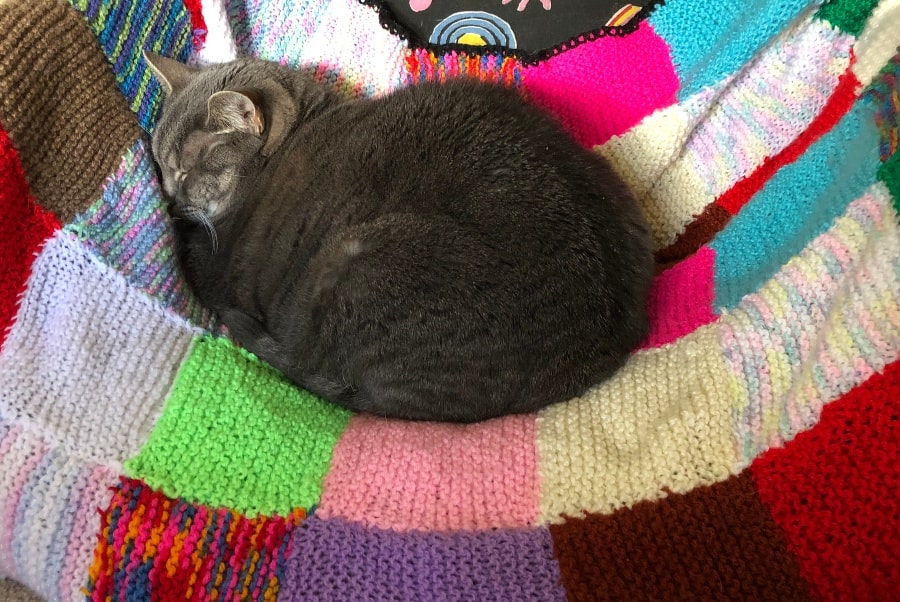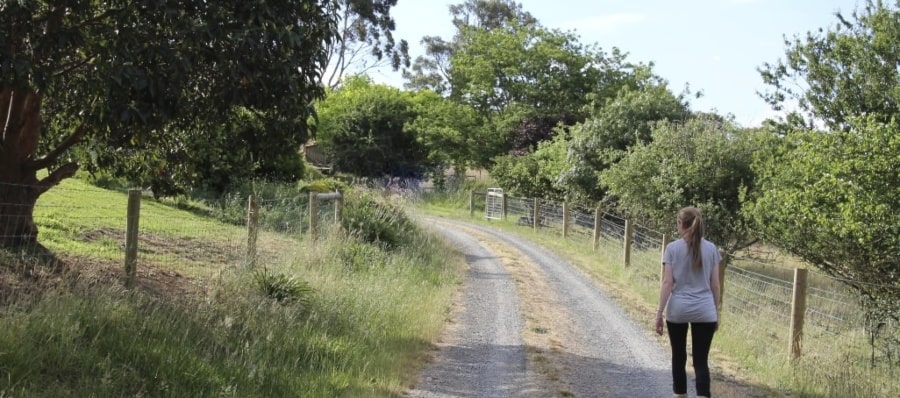We live in a culture where quitting is seen in a certain undesirable light. With phrases like, “don’t give up” and “winners never quit and quitters never win” (which are all well and good until they become damaging) seeming to be instilled in us from everywhere, what I’m about to suggest is something you need to brace yourself for. Are you ready? I’m suggesting you quit. Yes, I said it. Quit.
But not just willy nilly either. We’re quitting with intention here. We’re tossing aside or at least shelving the above notions that strongly suggest that we keep going (even when it may be in our best interests to quit, or when not giving something up or stopping something is actually harmful to ourselves or others). We’re committing to quitting.
Note: this is not about the Commit to Quit smoking campaign, so if you’re here for that feel free to have a read, but this post is not about that.
If you’ve been looking for permission to quit a job that’s making you sick, a habit that isn’t sustainable or is downright damaging, an abusive or otherwise unhealthy relationship, or anything else you’re doing where the benefits aren’t equalling or outweighing the costs, this is it. This is your permission to quit. Although like I said, we need to do so sensibly. I’m not to be held liable or responsible if quitting something has unintended consequences for the individual. Everyone needs to take responsibility for their own lives.
Now that’s out of the way, we can begin.
Quitting something requires just as much commitment as deciding to do something. It’s an unusual concept in this culture where quitting has such an undesirable reputation, and nobody wants to be seen as or considered a quitter.
But let me just say, since I heard someone say during a Hay House Summit (I’ve listened to so many I can’t remember who said it or which one it was in), “you’ve got to commit to the quit”, I’ve been on board with the idea of quitting. I have no qualms with being called a quitter.
Quitting, in my mind, has gone from being something so undesirable that I’d never want associated with me, to being a liberating and freeing experience leading to a simpler and more intentional spacious life.
When I quit one thing, I’m able to pick something else up, or deepen my commitment of time and energy to something in my life that is truly meaningful.
In simplifying my life and embracing the slow living movement, I learned that quitting was not only beneficial but necessary to my overall wellbeing and what I’m truly here to do.
I knew my why, and I was strategic about how I went about quitting various things.
Here are 5 things that I quit and what they made room for in my life:
1) A career path not aligned with my higher purpose (more than once)
I can’t count on all my fingers and toes combined the amount of careers I’ve considered and committed to in my head, only to change my mind months down the track.
On the outside it probably looks chaotic, but on the inside what’s really going on is fear-based striving and hustling for my worth trying to commit to things that weren’t for me at all despite my belief that they were (other people’s values and beliefs were very sneaky disguised as my own for a while there, while my own values and beliefs were tied up in a cupboard unconscious but have since been rescued and resuscitated).
Some notable quits were psychology, aged care, and craft markets. I did a whole university degree with the intention of becoming a psychologist. Half a year before I was set to graduate, something wouldn’t let me go through with it. I graduated and everything, but I just couldn’t pursue it as a career.
I’ve noticed this pattern in life, in relationships and in careers, that if I’m about to commit to something or someone that isn’t in alignment (unbeknownst to me), then something will happen externally or internally and I’ll seem to chuck a u-ey (U-Turn for non-Australian folk) and suddenly go in a different direction. I don’t know why it happens, and sometimes it can be painful, confusing, and upsetting for all involved, but ultimately it turns out for the best and I only see why it had to happen like that in hindsight.
At one point after I decided the psychology profession wasn’t for me, I decided aged care is what I’ll dedicate my time to. I volunteered twice and realised, oh heck, this is not for me despite my best intentions.
Then it was being an SSO in schools helping kids, but despite going through all the training, I couldn’t do it. Something just wouldn’t let me go through with it. So I quit. Again.
Quitting the above allowed me to commit more deeply to my writing craft and starting this blog, which I may not have done had I not quit these pursuits. It also allowed me to rediscover my passion for advocating for animals and caring for them.
I think I got caught up in the idea that to help other people was what I was called to do being empathic and feeling deeply. But now I realise it’s the animals that I’m being called to support, nurture and protect through advocacy and education.
I tried craft markets but didn’t like them (I found them exhausting, and often secretly hoped they’d be cancelled), despite my best efforts to ignore my feelings and try and like them. Quitting craft markets allowed me to knit for charities I cared about and keep animals warm this winter.
Knitting for the animals feels much more in alignment than doing craft markets (where I often felt pressure to sell and be a business and “churn things out” to sell, which I tried to do but my heart wasn’t really in it – my heart’s in the knitting, not the business side of things), and that’s just a personal thing.

2) A sleep schedule or morning routine
There’s a lot out there about morning routines and needing to have a sleep schedule with specific times to adhere to. Not to mention the word discipline popping up all over the place. Almost like it’s a competition to see who can get up earlier than who and do the most.
With the best of intentions and thinking that a schedule of early rising was the optimal way to be, I set up a sleep schedule based on times. I went to bed at a certain time (10pm), and I got up at a certain time (6am), no matter my personal cycles and seasonal cycles.
I soon realised that this wasn’t sustainable. This may work for others, but getting up that early didn’t lead to more productivity, or any benefits really.
Just as I’m editing this post to be published, YouTuber David Boland put out a video that’s very timely (the bit about the evolutionary advantages of everyone having different sleeping schedules wasn’t something I’d considered before but it shed some new light on my partner and my very different sleeping preferences), and you can have a look at that here: The truth about getting up early that no-one tells you.
I realised that it was more important to listen to my natural cues and cycles as to how much sleep was optimal for me at any given time and the specific times. I also couldn’t imagine getting up at 4am or 5am. I’ve tried that too, but my body says no in various ways.
My findings were that I needed more than 8 hours of sleep just before menstruation and during ovulation, and fewer hours of sleep during menstruation.
I also noticed over time and over the seasons my body naturally needed far more sleep and general rest in the winter, but in summer I’d naturally wake up earlier and feel the need for less sleep. Other factors also contribute like moon cycles and other occupants of the household and their sleep schedules.
What I quit was the pressure to adhere to a strict sleeping schedule or morning routine (I use the term sequence rather than routine as it sounds less rigid and takes away the pressure, but more on that in a future post), and instead committed to listening to my body to tell me what would be best for me.
At the moment in mid-winter and at my current cycle phase I’m going to bed generally around 10.30pm and waking up around 8.30am (I wake up without an alarm and like to lie in bed for a while before getting up). I’m healthily productive and well-rested. These sleep times will probably change in summer.
This is what works for me, having a very fluid and changeable ‘schedule’, and I now honour that (despite a lot of people who would consider that too much sleep).
3) A relationship where I wasn’t fulfilled
No details necessary, but if I hadn’t committed to a breakup in early 2018, I wouldn’t have got together with my current partner in mid-2019 (at the time of writing this, we just celebrated our four year anniversary!).
4) Eating meat and animal products
The best things I’ve quit for various reasons, and you can read more about my commitment to veganism in these related posts:
- Veganuary: For The Love Of Animals
- What I Did & Didn’t Expect When Transitioning To A Being Kind To The Animals Lifestyle (Veganism)
5) Letting other’s values, opinions and beliefs dictate my life choices
As I mentioned above, other people’s values and beliefs can masquerade around as your own for ages, while yours are trussed up unconscious. Committing to quitting those things not in alignment, that don’t feel right to you, allows you to resuscitate your opinions, values and beliefs.
This is a process that I’m still undergoing, but it’s having an amazingly positive impact on my life when I live for me and those that matter to me rather than out of fear that I’ll be judged if I don’t do x, y and z or if I start doing p, q and r.
It is a process though.
Final Thoughts
I’m glad that I quit these five things, just as I’m glad my partner quit smoking and drugs, that a friend quit a relationship that wasn’t good for her (and now finds herself in a relationship with someone amazing), and glad that a family member quit a job temporarily that was making her stressed and sick.
What are some things that you’d like to quit? How do you feel about the idea of quitting?
Let me know in the comments below or reach out to me at [email protected]. I’d love to have a discussion and support you in reaching your quitting goals.
Love,

P.S. For extra content, updates and other good stuff, you’re warmly invited to join The Quiet and Curious folk community by signing up to the email newsletter below:



